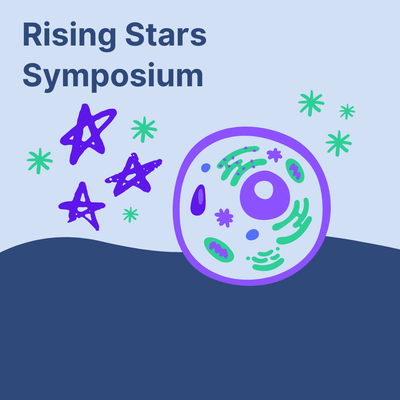
The Rising Stars in Cell Biology Symposium
Date: April 20, 2024
East Baltimore Campus
Baltimore, MD
Questions? Contact us at rising_star_symposium@live.johnshopkins.edu
Description
The Rising Stars in Cell Biology Symposium will provide an opportunity for early career scientists (undergraduates, post baccalaureates, PhD students and postdoctoral fellows) from diverse backgrounds within the greater Baltimore area to present their research and network with peers. This symposium will include talks and poster sessions for trainees to exchange ideas and feedback with peers and senior scientists.
Applicant Information
Abstract Guidelines
- Abstract must contain: Title, Keywords (5 max), Presenting Author
- Main text should include background, methods, results, and impact
- Main text character limit: 2000 characters (including spaces)
If you do not have research experience and would like to apply, you will be asked to describe how you will benefit from attending the symposium.
Registration deadline: March 25, 2024 @ 11:59pm
Content
8:00-9:20 am: light breakfast and registration
9:20-9:30 am: intro
9:30-10:30 am: Trainee talk session I
10:30-11:30 am: Poster session I
11:30 am-12:15 pm: lunch
12:15-12:45: Career development panel intro
12:45-1:30 pm: Career development discussion
1:30-2:15 pm: Trainee talk session II
2:15-2:30 pm: break
2:30-3:30 pm: keynote: Chantell Evans
3:30-4:30 pm: Poster session II
4:30-6:00 pm: happy hour and networking
Please find the program for the event here.
Keynote Speaker

Chantell Evans, PhD
Duke University
Assistant Professor of Cell BiologyHHMI Hanna Gray FellowDuke Science and Technology Scholar
Chantell received a B.S. in Chemistry from Southern Illinois University and her Ph.D. in Molecular and Cellular Pharmacology from the University of Wisconsin – Madison. Her graduate thesis investigated Ca2+-regulated exocytosis using biochemistry and biophysics. She completed her postdoctoral training at the University of Pennsylvania where she used advanced microscopy and biochemical techniques to gain insight into the molecular mechanisms that regulate mitophagy in primary neurons. Chantell is an inaugural recipient of the Hanna Gray Fellowship from the Howard Hughes Medical Institute.
Sponsors





